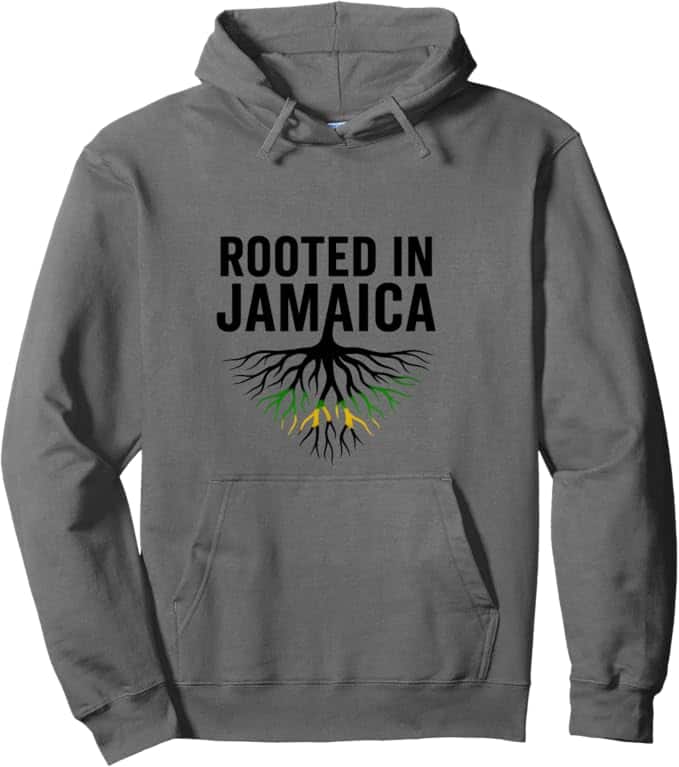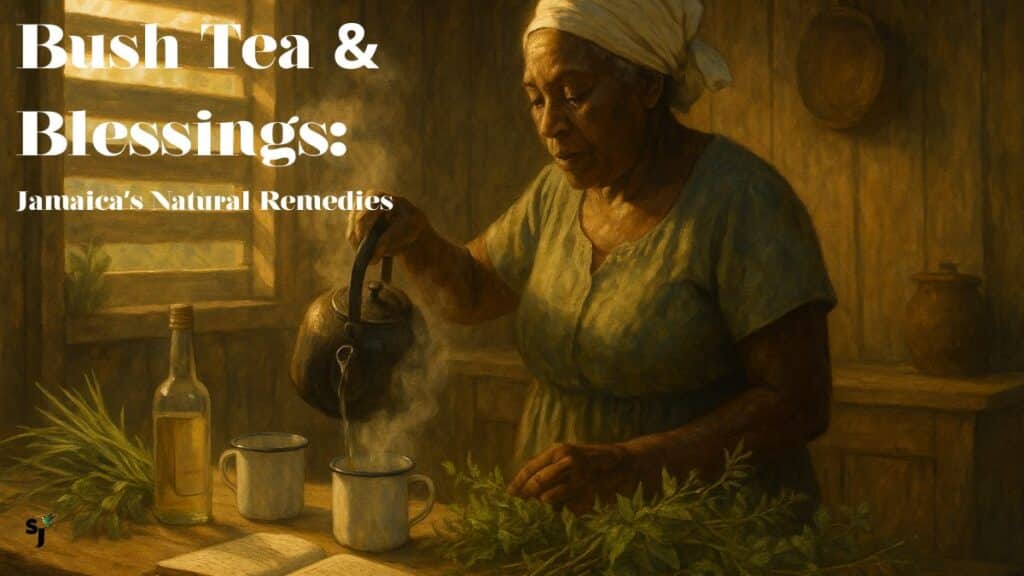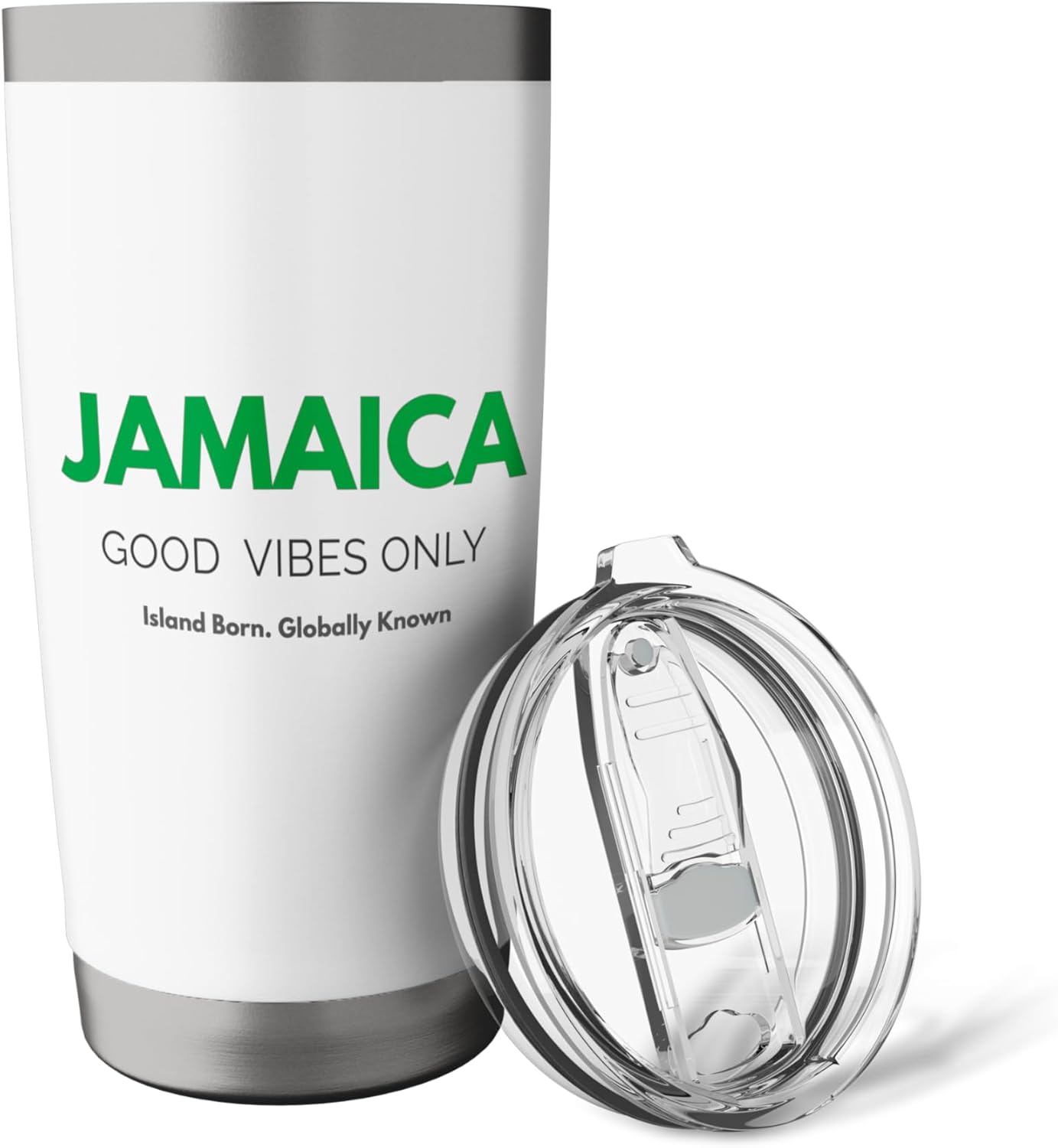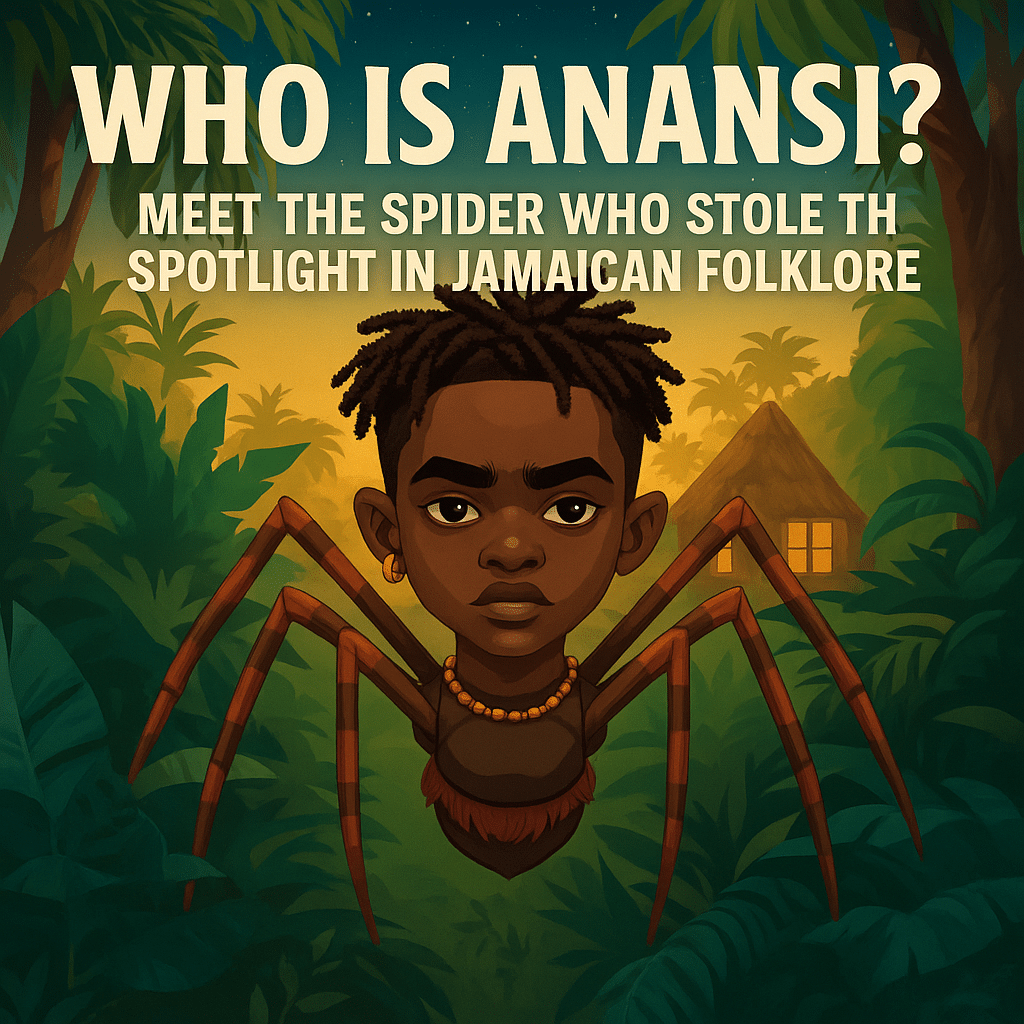🍵 Introduction: More Than Just Tea
In every Jamaican yard, there’s one potion for every problem — and it usually starts with boiling water, a handful of bush (herbs), and Grandma saying, “Hold dis, it a go fix yuh up.” Before pharmacies and pills, Jamaicans turned to the land for healing. Jamaican bush teas wasn’t just medicine — it was culture.
In this article, we explore how Jamaica’s love for bush tea became both a home remedy and a ritual of care — especially in the countryside where nature was the pharmacy and Granny was the doctor.
🫖 If you haven’t yet, read our first feature — Mi Granny Seh: The Matriarch & Keeper of Jamaican Culture — to see how Granny became the voice behind Jamaica’s wisdom, stories, and traditions.
Bush tea, as simple as it sounds, carried power — not just for the body, but for the soul.
🌿 Granny the Healer
When Granny made tea, she wasn’t just steeping leaves — she was steeping centuries of wisdom passed down from her mother, and her mother before that.
She knew which plant to pick for every ailment. “Fever grass fi yuh cold, cerasee fi clean out yuh system, mint fi di gas.”
In the countryside, bush tea truly thrived — where fever grass grew by the fence, mint behind the kitchen, and cerasee vine (the bitter one that always find a way) climbed anything in sight. In town, people still kept their herbs — mint or thyme planted with purpose, cerasee sprouting wild — or they’d head to Coronation Market for their favorite “bush.” Either way, the tradition lived on from yard to yard, pot to pot.
To Granny, sickness wasn’t just physical — it had to be treated from the inside out. And so she’d whisper a prayer over the steaming cup:
“Father God, bless dis likkle tea and make it work.”
That was Jamaican medicine — a mix of nature, faith, and a dash of old-time science that somehow always seemed to work. To this day, Jamaican bush teas remains one of the island’s most trusted natural remedies.
🇯🇲 Jamaica Good Vibes Only
Bold, minimalist typography with the Showcase Jamaica tagline: Island Born. Globally Known. Whether you’re from yaad or abroad, this piece keeps the vibes irie.
Shop on AmazonEvery Nook. Every Cranny. All Jamaican. — Showcase Jamaica
🔥 The Holy Trinity of Jamaican Remedies
If you grew up in a Jamaican household, you already know the Big Three — bush tea, white rum, and prayer. Those were Granny’s secret weapons.
Bush Tea: For cleansing, cooling, calming, and curing. Whether you were sick or just “needed something fi clean yuh out,” Granny always had a pot on the fire. She didn’t need a thermometer or dosage chart — just her eye, her hand, and the wisdom of generations.
White Rum: The unofficial national cure. Rub it, sip it, gargle it — whatever the problem, “likkle white rum fix everything.” It was disinfectant, massage oil, cold remedy, and courage booster all in one. Some families even kept a special bottle marked “medicine only” — though nobody ever followed that rule.
Prayer: Granny’s final and most powerful ingredient. After every rub-down or cup of tea came the same quiet reminder: “Medicine cyaan work without faith.” And somehow, when she prayed, you believed her — that healing wasn’t just about herbs or rum, but about hope.
Together, these three formed a kind of spiritual science — one part nature, one part belief, and one part pure Jamaican resilience.
🌱 The Famous Bush Teas
Granny had a bush for every occasion — and every one of them came with a story. From the bitter vines that “clean out yuh blood” to the sweet-smelling herbs that calm your nerves, her herbal knowledge was a mix of science, faith, and generations of trial and trust.
Here are some of the most common teas drawn from Granny’s herbal knowledge — remedies passed down through generations and trusted to this day:
- Cerasee: Bitter but beloved — used for “cleaning out di system” or “cooling down di body.” It might twist up your face with that first sip, but everyone agrees — the more bitter it taste, the better it work.
- Fever Grass (Lemongrass): For cold, flu, and fever. The smell alone could make you feel better, and Granny swore it “sweat out any sickness” if you drink it piping hot and wrap up in a blanket.
- Peppermint: For bellyache, indigestion, or when you just needed to relax. Its sweet scent filled the kitchen and calmed both the stomach and the spirit — a gentle cure for body and mind.
- Sinkle Bible (Aloe Vera): The all-purpose healer — used for burns, cuts, and “cooling down di body.” Some also rubbed the gel in their hair or scalp as a natural conditioner.
- Ginger: A household staple — grated for colds, upset stomachs, or mixed with lime and honey for flu. The smell alone could wake up your senses.
- Leaf-of-Life: A thick, fleshy succulent known as the “miracle leaf.” It’s often used to ease coughs, soothe sore throats, and help with chest congestion or fever. Some people crush the leaves and drink the juice, while others warm them and press them on the chest to draw out cold or mucus.
- Thyme: A household favorite in Jamaica, used for both cooking and healing. Steeped as a tea with honey and lime, it helps ease coughs, colds, and congestion. It also aids digestion, fights mild infections, and soothes headaches.
Each leaf had a purpose, and Granny could identify them all — even in the dark.
She didn’t just know what to use; she knew when. Fever grass for the common cold, cerasee for the “after-weekend cleanout,” and peppermint for when your spirit needed to calm down as much as your belly.
💫 More Than Medicine
Jamaican bush teas wasn’t just about healing — it was an act of care.
When Granny handed you that enamel cup, it wasn’t only to fix your belly or “cool yuh down.” It was her way of saying, “Hush yaa mi chile, nuh worry, dis will mek it all better.” A silent promise that love and protection were always within reach, one sip at a time.
Every brew came with a bit of storytelling — how her own grandmother used to make it, and how after drinking the bitter tea she’d get a likkle sweetie or spoon of sugar fi “sweet up har mouth.” It was more than remedy; it was memory.
The ritual itself carried healing — the slow boiling, the smell that filled the house, the first bitter taste that somehow made you feel better even before the tea cooled. It taught patience, gratitude, and respect for what the earth provides.
Bush tea reminded Jamaicans that wellness was never bought in a bottle — it was nurtured, shared, and brewed with love.
🕯️ Bush Tea & Blessings in Modern Times
Times have changed, but Granny’s ways never really left us.
Today, you can find Jamaican bush teas neatly packaged in grocery stores, wellness shops, and online markets. But for many, the real thing still come from home — a handful of fever grass picked from the yard, or a friend carrying up cerasee and mint from country when they fly out.
Modern life might move faster, but the ritual remains the same. When you feel a cold coming on or just need to “reset,” the instinct is still to put on the kettle and reach for a bit of bush. The first sip might taste bitter, but it carries generations of comfort — a reminder that some things can’t be rushed, and healing doesn’t always come from a pharmacy.
Granny’s wisdom has simply found new hands. From country kitchens to city apartments and foreign homes abroad, Jamaicans still turn to the same plants, the same prayers, and the same belief that nature provides what we need.
So when you sip your next cup of cerasee or fever grass, remember — it’s more than tea. It’s a blessing passed down through time, brewed with love, patience, and a bit of Granny’s faith.
💬 Which bush tea did your granny swear by? Drop a comment below and share your favorite home remedy — every story keeps the tradition alive.
Until next time, Walk Good.

Rooted in Jamaica Hoodie
Show your pride from yaad to abroad 🌴 This cozy hoodie blends heritage, style, and comfort with bold roots in the Jamaican flag.
Shop on Amazon



